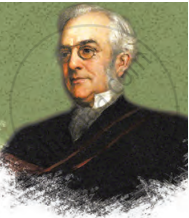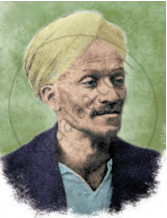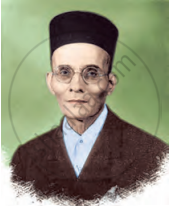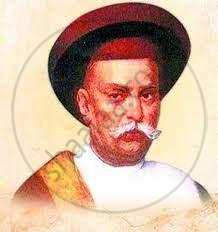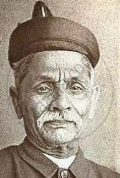Topics
Historiography : Development in the West
History : Applied History
Working of the Constitution
Historiography : Indian Tradition
The Electoral Process
Political Science : Working of the Indian Constitution
Applied History
Political Parties
History of Indian Arts
- What is ‘Art’?
- Indian Traditions of Visual Arts (Drik Kala): Painting
- Prehistoric Paintings
- Mural Paintings and Cave Painting
- Folk Styles of Paintings
- Classical Styles of Painting
- Miniature Paintings in Manuscripts
- Modern Indian Paintings
- Indian Traditions of Visual Arts (Drik Kala): Sculpture Art
- Indus Civilization Sculpture
- Folk Styles of Sculptural Art
- Classical Styles of Sculptural Art
- Indian Iconography
- Indian Traditions of Visual Arts (Drik Kala): Architecture and Sculpture
- Rock-cut Architecture
- Temple Architecture
- Indo-Islamic Architecture
- Indo-Gothic architecture
- Indian Traditions of Performing Arts
- Indian Theatre
- Indian Music
- Indian Dance
- Present Scenario of the Performing Arts
- Art, Applied Art, and Professional Opportunities
Social and Political Movements
- Movement
- Important Movements in India
- Tribal Movement
- Farmers Movement
- Worker's Movements
- Women’s Movement
- Environment Movements
- Consumer Movement
Mass Media and History
Challenges Faced by Indian Democracy
Entertainment and History
Sports and History
Tourism and History
Heritage Management
History - Imperialism
History - 20th Century Age of conflict
History - Emancipation of Asia and Africa
History - World after World War 2
Political Science
Geographical discoveries and colonization
- Concept for Geographical Discoveries and Colonization
Africa
- Imperialism - Africa
Asia: India, China, Japan
- Concept for Asia: India, China, Japan
Dictatorships in Europe, Second World War and world
- Concept on Dictatorships in Europe
- Concept for Second World War and World
First world war
- Concept on First World War
The League of Nations
- Concept for the League of Nations
Russian Revolution
- Concept for Russian Revolution
United Nations Organization
- Concept for United Nations Organization
Africa
- Emancipation of Africa
Asia
- Emancipation of Asia
Globalization
- Globalization After World War II
Scientific and Technological Progress
- Scientific and Technological Progress After World War II
Cold war
- Formation of the Cold War
Social Diversity and Democracy
- Social Diversity
- Coccept for Caste/Race and Democracy
- Concept for Language and Democracy
- Cocnept for Religion and Democracy
- Concept for Gender and Democracy
- Concept for Democracy and Diversity
Challenges to Democracy Remedial Measures to the Challenges
- Concept for Challenges to Democracy Remedial Measures to the Challenges
Internal work
Democracy
- Democracy - Meaning, Types and Characteristics
Political Parties and Types
- Political Parties
- Importance of Political Parties
- Major National and Regional Parties in India/ Types of Political Parties
- Colonial Historiography
- Orientalist Historiography
- Nationalistic Historiography
Notes
Historiography in the Pre-Independence Era:
1. Colonial Historiography:
- The early scholars who studied and wrote Indian history were mainly British officers and Christian missionaries.
- Colonial historiography refers to historiography that originated in Colonial India in the late 18th and early 19th centuries. Because it was written during the colonial period, the writings were heavily influenced by the ideologies of colonial rule.
- The five volumes of "Cambridge History of India", published during 1922-1937 C.E. are distinct examples of colonial historiography.
2. Orientalist Historiography:
- Many European scholars felt curious about
civilisations and countries of the East.
Some of those scholars felt admiration
and respect for them. These scholars
were known as ‘Orientalists’.
- The similarities between Sanskrit and several European languages were researched by orientalists.
- They placed more emphasis on Sanskrit literature and Vedic culture. As a result of their research, the theory that an ancient language might be the ancestor of all Indo-European languages was developed.
- Notable Orientalist scholars are Friedrich Max Muller and William Jones.
civilisations and countries of the East.
Some of those scholars felt admiration
and respect for them. These scholars
were known as ‘Orientalists’.
A] Sir William Jones :
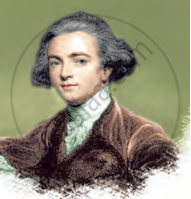 William Jones |
- In 1784, Sir William Jones founded the Asiatic Society in Kolkata.
- It opened the doors for research in ancient Indian literature and history.
B] Friedrich Max Muller:
|
Friedrich Max Muller |
- A special mention should go to Friedrich Max Muller among Orientalist academics.
- He considered Sanskrit to be the oldest of the Indo-European languages.
- He had a strong passion for Sanskrit literature. He began by translating the Sanskrit book 'Hitopadesh' into German.
- The Sacred Books of the East were edited by him in 50 volumes. Additionally, he compiled the 'Rigveda,' which has been printed in six volumes. In German, he translated the Rigveda.
3. Nationalistic Historiography:
- The writings of Indian historians who were
trained in the British educational system
show an inclination to restore the pride
in the ancient glory of India and the self-
esteem of the Indian readers. Their
writings are known as ‘Nationalistic
Historiography’. - The Indian Historians through their writings made efforts to raise patriotic feelings among the Indians. They presented the glorious past of the country before the people. They put their achievement before the world that India was culturally as well as socially developed in ancient times.
- Historians like K.P. Jayaswal, Bankim Chandra Chatterji, Raj Narain Bose, and Chandra Nath Basu. Swami Dayanand Saraswati, Swami Vivekananda, and many others recalled the past glory of India. R.C. Dutta, Dr. Mookerjee, S.P. Sen – raised patriotic feelings among India.
A] Vishnushastri Chiplunkar
|
Vishnushastri Chiplunkar |
- In Maharashtra, nationalist writings were inspired by Vishnushastri Chiplunkar.
- He condemned the prejudiced history of ancient India by British historians.
- The nationalist historians wrote about the golden period of Indian history. But they are blamed for not critically analyzing ancient Indian history.
B] V. K. Rajwade:
|
V. K. Rajwade |
‘Human history is defined by Time and Space. Describing any event necessitates that the final portrayal should be spread on the complete canvass of the given time and place. Only if a balanced combination of the three factors, Time, Space, and Personalities is present, then only an event does qualify to be called so.’ - V. K. Rajwade
- Rajwade is well recognized for his Marathi writings on a variety of topics, including linguistics, etymology, history, and grammar.
- He was determined that we need to create our own history.
- 22 volumes of 'Marathyanchya Itihasachi Sadhane' were collected and edited by him. The prefaces he wrote for each of the 22 books are quite academic.
- ‘History is the all-inclusive image of the past societies. It does not include only the stories of political images, conspiracies, and wars for seizing power.’ he said.
- It covers more than just tales of political intrigue, fights for dominance, and political images. He argued that only the original documentary source should be used to write history.
- Bharat Itihas Samshodhak Mandal was established on July 7th, 1910 in Pune by him to aid in historical study.
C] Vinayak D. Savarkar
|
Vinayak D. Savarkar |
- The nationalistic historiography awakened pride among the Indians and helped in triggering the national movement.
- V. K. Savarkar wrote a book on the Indian revolt of 1857 entitled ‘The Indian War of Independence, 1857’.
D] Justice Mahadev Govind Ranade:
|
Justice Mahadev Govind Ranade |
- In his book, 'The Rise of Maratha Power,' Justice Mahadev Govind Ranade provides a thorough explanation of the circumstances behind the rise of the Maratha empire.
- He claimed that it wasn't like a forest fire that suddenly broke out because Maharashtra's social, cultural, and religious landscape had been preparing for it for a while.
E) Govind Sakharam Sardesai:
|
Govind Sakharam Sardesai |
The publication of Govind Sakharam Sardesai's 'Marathi Riyasat' was a significant development in Indian historiography. People began referring to him as 'Riyasatkar' because of the fame his work had attracted. A number of volumes of Maratha's history were written by him.
Related QuestionsVIEW ALL [6]
Complete the table:
| Orientalist historiography | ______ |
| ______ | V.V. Mirashi |
| Marxist historiography | ______ |
| ______ | Dr. Babasaheb Ambedkar |
